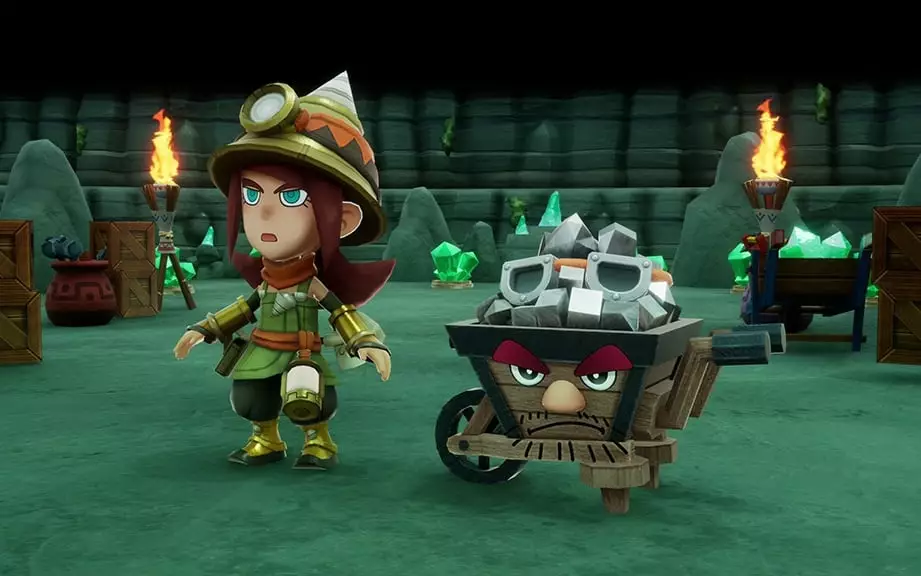Level-5 has once again graced gamers with a delightful addition to their franchise with “Fantasy Life i: The Girl Who Steals Time.” Since its recent launch, the game has managed to attract attention not only for its vibrant art style but also for its intricate blend of genres. Early reviews highlight a spot-on combination of life simulation and action-based gameplay, something that might resonate with both hardcore RPG enthusiasts and casual players. The game appears to successfully tread the fine line between ennui and excitement, where players find themselves engaged in everyday tasks one moment, and embarking on exhilarating quests the next.
What stands out in this entry is its commitment to storytelling, offering players a whimsical narrative that is both lighthearted and impactful. With characters that seem to jump off the screen with their quirky charm, the universe crafted by Level-5 feels alive and immersive. It is a world filled with quirky personalities and bizarre plotlines that echo the playful spirit of life itself. According to many reviewers, the sheer diversity of character interactions lends depth to the gaming experience, ensuring that players are not just going through the motions but are truly part of an evolving story.
RPG Mechanics That Engage
One of the compelling aspects of “Fantasy Life i” is its RPG-like life system. Gamers find themselves immersed in intricate leveling mechanics that require both strategy and creativity. The skill tree is not just a trivial aspect of gameplay, but rather an essential element that encourages investment in character development. Players are often heard saying how they “lose track of time” while honing their skills, a testament to how engrossing the leveling system can be.
Critics ensured that they noted this often-overlooked feature, emphasizing that it’s easy to get swept up and forget the world outside while crafting, fishing, or battling various foes. The synergy of crafting and exploration creates a tapestry of choices that enhances the gameplay horizon. It makes one ponder if the game reflects a deeper insight into life’s purpose: balancing work and play while pursuing personal growth.
Multiplayer Experience: A Double-Edged Sword
Despite the accolades, the multiplayer mode has emerged as a controversial talking point among players. Some have dubbed it “limited,” suggesting that while the core gameplay shines, the social interactions feel somewhat constraining. The expectations were high for a feature that could unite friends and create shared experiences, yet many have voiced concerns over the execution. A notable review pointed out that while solo play feels rewarding with a rich narrative and emotional scores, the multiplayer aspect lacks that same spark.
Individual players might find solace in the single-player journey, but the disappointment in multiplayer mechanics could deter collaborative gaming enthusiasts. This discrepancy makes one wonder if Level-5 intended to weave a narrative that kept players engaged in their own stories rather than facilitating shared experiences.
Platform Performance: A Mixed Bag
When considering the various platforms for “Fantasy Life i,” performance issues emerged that warrant attention. While the PC version reportedly flaunted a near-flawless experience, the Switch counterpart displayed some hiccups. Frame rate drops during intense moments created concern for players who prioritize smooth gameplay. The idea of an upgrade for the Switch 2 is exciting, and expectations are high for improvement in graphics and performance. However, those choosing to remain on the current model may face subpar experiences amid an otherwise enchanting game.
Yet, amidst these critiques, some players remain steadfast in their affection for the Switch version. Early adopters still found joy in the visual aesthetics and feel of playing on a portable device. It underscores the undeniable charm of having such a dynamic game in the palm of one’s hand, even if it doesn’t deliver the most technically proficient experience.
The Final Word on Fantasy Life i
“Fantasy Life i: The Girl Who Steals Time” encapsulates what makes gaming a cherished medium for so many—its ability to transport us into alternate realities filled with whimsy, creativity, and wonder. The contrasts presented in reviews paint a rich picture of a game that falters in some areas while excelling in others. As gamers flock to explore this new universe, “Fantasy Life i” remains a hot topic of discussion, igniting the spirits of both new players and long-time fans of the franchise alike. The blend of charming aesthetics, engaging RPG mechanics, and quirky narratives invites players to take a leap into a world where they can craft their journeys—one day at a time.


Leave a Reply